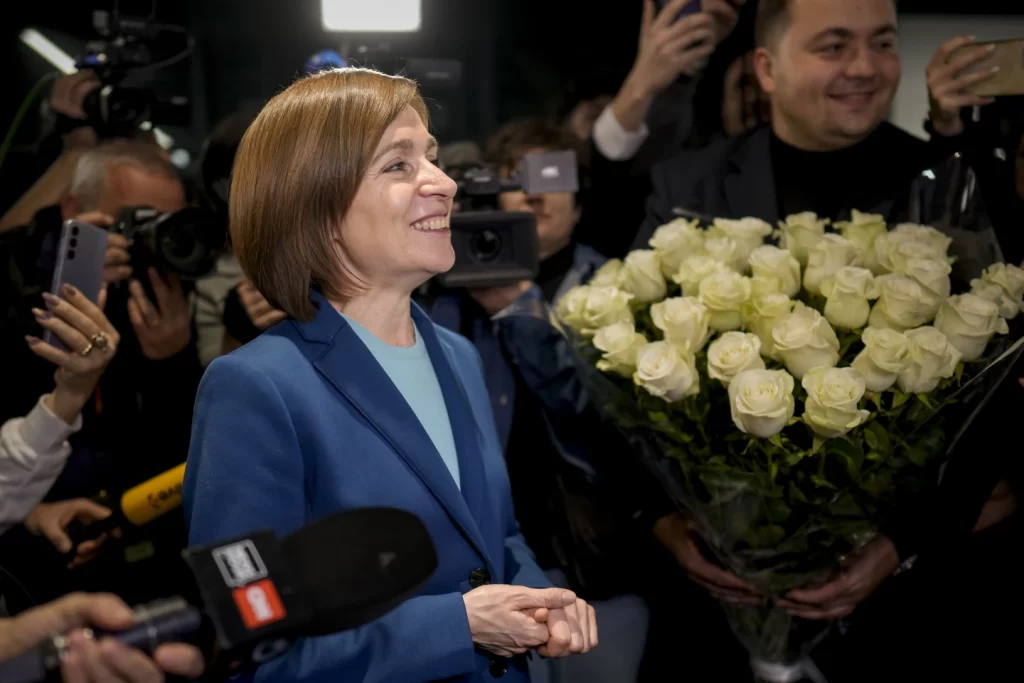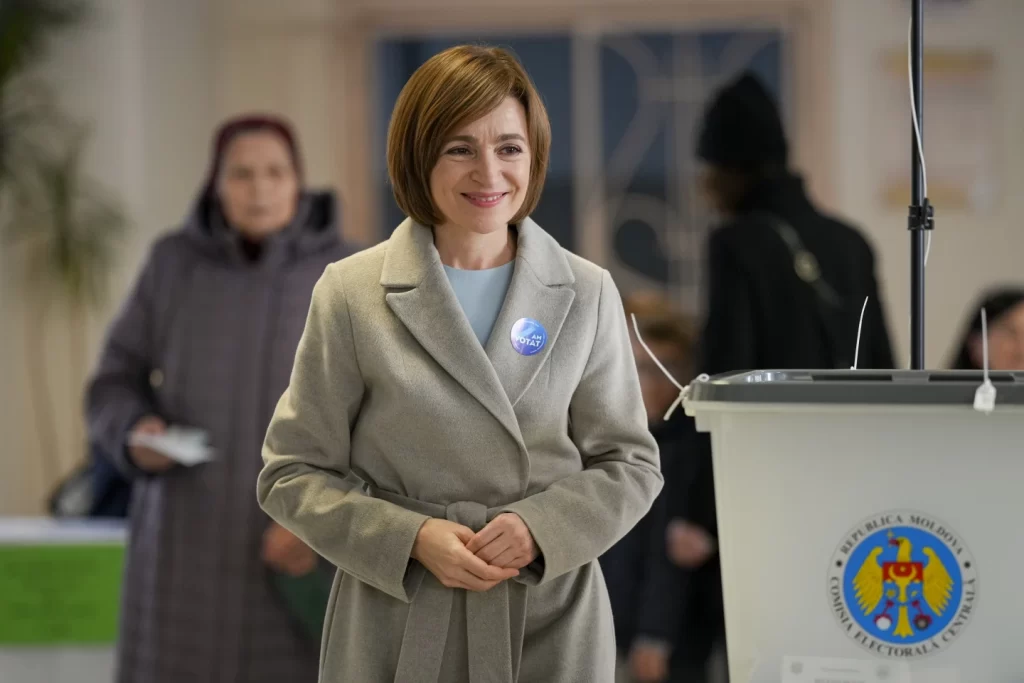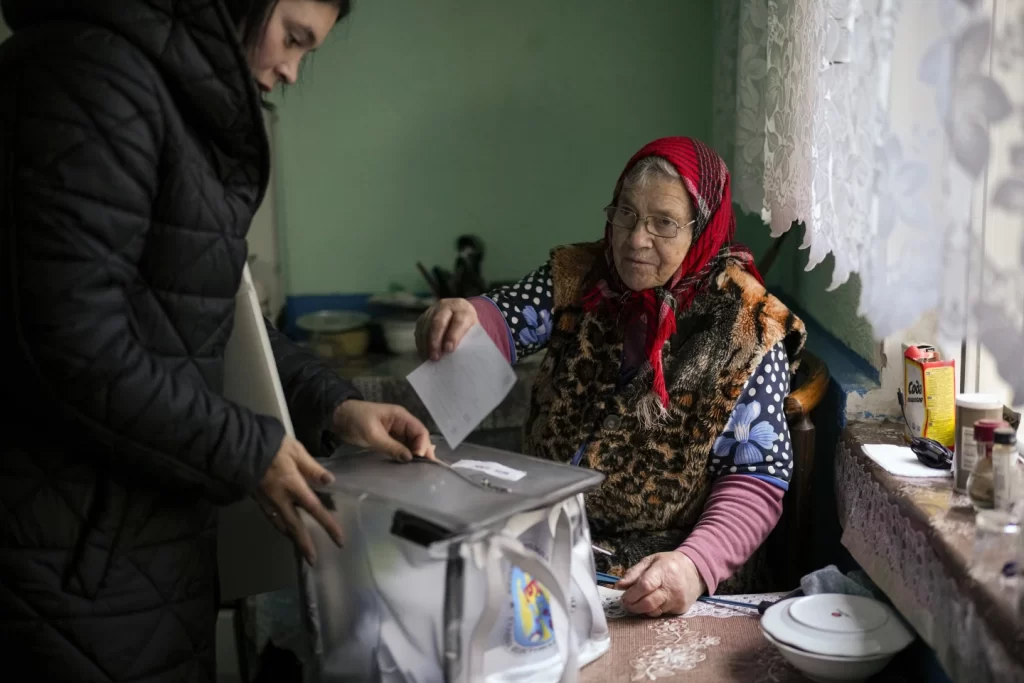Pro-Western President Maia Sandu secured a second term in Moldova’s presidency Sunday, winning 54% of the vote in a closely watched runoff election shadowed by allegations of Russian interference and voter manipulation.

With nearly 98% of ballots counted, Sandu defeated former prosecutor general Alexandr Stoianoglo, who garnered 46% of votes, according to Moldova’s Central Electoral Commission. Voter turnout reached 54%, with more than 1.68 million people casting ballots.
“Moldova, you are victorious!” declared Sandu, 52, in her victory speech. “Today, dear Moldovans, you have given a lesson in democracy, worthy of being written in history books.”
The election result reinforces Moldova’s pro-Western trajectory at a critical moment for the former Soviet republic of 3 million people. Sandu, who launched EU accession talks in June, has positioned the agricultural nation firmly on a path toward European integration.

National security concerns loomed large over the campaign. Sandu’s security adviser, Stanislav Secrieru, alleged “massive interference by Russia” in the electoral process, claims Moscow has denied. Authorities have accused Ilan Shor, a fugitive oligarch residing in Russia, of attempting to influence voters with millions in payoffs – allegations he rejects.
Stoianoglo, backed by the pro-Russia Party of Socialists, campaigned on a platform of balanced East-West relations, promising to renegotiate Russian gas deals and expressing willingness to meet with Russian President Vladimir Putin. “I voted for a free, stable and blossoming Moldova that isn’t standing with its hand out, but develops in harmony based on relations with the West and East,” he said after voting.
The election’s outcome carries particular significance given Moldova’s strategic position bordering Ukraine and its vulnerability to regional tensions since Russia’s 2022 invasion of its neighbor. It comes just a week after Georgia, another ex-Soviet state seeking EU membership, saw its ruling party, viewed by some Western observers as increasingly pro-Russian, retain power.
Sandu’s first term was marked by deteriorating relations with Moscow, including the expulsion of Russian diplomats and strong condemnation of the Ukraine invasion. The Kremlin has labeled her government “Russophobic.”

The president now faces the challenge of maintaining her reform agenda ahead of parliamentary elections next summer, where her party’s majority could be at stake. She emphasized the need to “prepare the country for parliamentary elections” and “preserve democracy.”
“Today is a crucial day for us,” said Mihai David, 58, a voter in Chisinau. “We go in one direction or the other. We didn’t have such an important day in the last 30 years.”
Sandu framed the election as a choice between EU integration by 2030 or instability, while Stoianoglo accused her of divisive politics in a country split between Romanian-speaking majority and Russian-speaking minority populations.
The victory strengthens Moldova’s pro-Western orientation as it navigates complex regional dynamics and pursues ambitious reforms required for EU membership.



